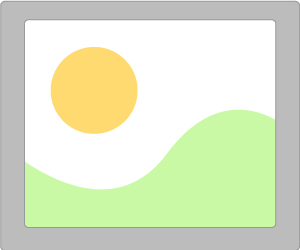Messages : 14
Langue: English
FoxtrotUniform (Voir le profil) 21 mars 2016 11:08:14
I havas pli junan fratino.
Yikes!
I am also a CODA (Child of Deaf Adults) and had an older brother who talked to me and had aunts and uncles who made sure that I got lots of exposure to spoken English as an infant, so that by the time I started school I understood both English and ASL equally well.
But I can express something in English without first running it through ASL first. And I can sing something in ASL without cranking it through English first.
Without total immersion, how long will it take me to get to the point where I can understand and use Esperanto without first cranking it through English? Or is it so different for every person that the question has no definitive answer?
Vestitor (Voir le profil) 21 mars 2016 13:21:17
How long did it take you to become fluent in English (or any other language)? If you take the rough estimate that Esperanto is supposed to be "ten times" easier to learn, you can adjust your expectation accordingly. Also the difference with regard to organised, concentrated adult learning rather than the partially passive learning of childhood which is over a longer period.
Alkanadi (Voir le profil) 21 mars 2016 13:44:20

I hope this gives you a good idea. Keep in mind that the chart is for classroom hours and does not include time spent outside the classroom.
I bet that you can become really good within a year.
Alkanadi (Voir le profil) 21 mars 2016 13:49:51
"If you come to class and do the homework, I personally guarantee that, unless you have specific learning disabilities, you will be reading, writing and conversing in Esperanto after only 3 Academic Quarters of study. How many language courses can even guarantee that you'll be able to speak using the past or future tense in just one year, let alone learn the past, present and future in the first lesson?"
http://www.esperanto.org/stanford/garantio/
This is based on a 2 hour class per week plus homework.
Серёга (Voir le profil) 21 mars 2016 13:50:08
Vestitor (Voir le profil) 21 mars 2016 13:57:23
There are plenty people who have had more than 600 classroom hours learning Spanish who still have an inadequate grasp. 600 hours is what...3 hours a day, 7 days a week for 6 months? 1.5 hours a day for a year? No-one gets "good" at Spanish from that.
Alkanadi (Voir le profil) 21 mars 2016 14:01:19
Vestitor:That is just learning it (addressed in the parenthesis by the OP).About 1 hour a day, plus homework, for about a year and a half.
There are plenty people who have had more than 600 classroom hours learning Spanish who still have an inadequate grasp. 600 hours is what...3 hours a day, 7 days a week for 6 months? 1.5 hours a day for a year? No-one gets "good" at Spanish from that.
These are just statistics from the FSI.
Miland (Voir le profil) 21 mars 2016 14:04:43
FoxtrotUniform:..is it so different for every person that the question has no definitive answer?In my view, that is the case. But you can measure yourself by attending Esperanto events and seeing how well you can follow talks or conversations in Esperanto, and how well you can express yourself in Esperanto without often looking up a dictionary.
Vestitor (Voir le profil) 21 mars 2016 14:19:17
It's well-known that thousands of students sit through classroom study for a similar 5 years and come out the other end with a limited grasp. I think these classroom hours estimations mislead people.
erinja (Voir le profil) 21 mars 2016 15:16:24
FoxtrotUniform:Without total immersion, how long will it take me to get to the point where I can understand and use Esperanto without first cranking it through English? Or is it so different for every person that the question has no definitive answer?There is no definitive answer. It depends a lot on your natural skill and how much time you put into it. If you study every day, you will progress faster than if you look at it once a week. 15 minutes a day is probably more effective than an hour once a week.
There's no real substitute for an immersion environment so I really encourage you to try to make it to an Esperanto event if you can. There are more smaller local ones than you realize and there may be one in not-too-bad distance from where you live. You can get far toward your goal by practicing your listening (radio news and podcasts are great) and speaking (Skype). But even with a lot of reading, writing, and online chat, you will get to speed more quickly than you think once you finally make it into an immersion environment.




